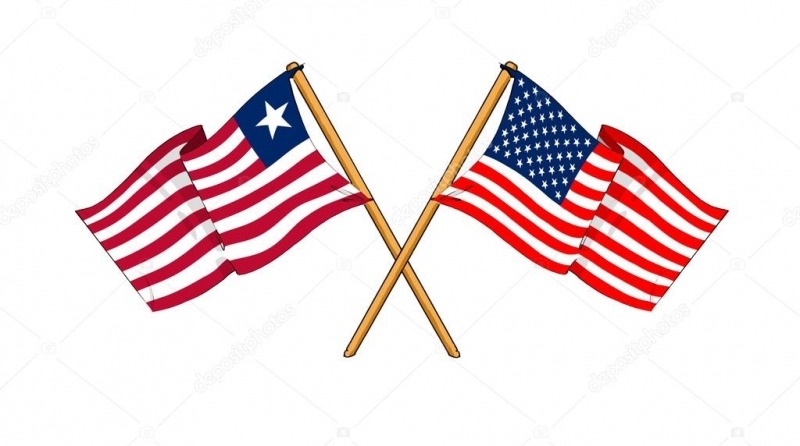Read Part I Of this Piece Here
Since the day Liberia gained its independence, its political life was dominated by Americo- Liberians; one of the inherent weaknesses of the Liberian Republic was the unwillingness and inability of its leaders to bring its citizenry together. Race continued to be the determining factor for who would run private and public institutions of the country. By 1870’s class and race issues had extremely detrimental effects on the nation; this led to the murder of some of Liberia’s leaders. Aside from the Americo-Liberians, the other group of Liberians -the indigenous or native Liberians, had an outburst. Those who codified and legitimized this socially divisive structure came from the ACS. This doctrine of segregation was not new to African-Americans. This segregation doctrine came to an end in the early hours of April 12, 1980 when 17 enlisted men of the Armed Forces of Liberia (AFL) overthrew the democratic system of government led by President William R. Tolbert. The story of the assassination of President Tolbert is vividly told in his wife’s, Victoria Tolbert, memoir “Lifted Up: The Victoria Tolbert Story.” After the coup by the military junta, the People Redemption Council (PRC), their first act was to suspend the Liberian Constitution.
On the morning of April 14, the new head of the military dictatorship, Chairman and Head of State, Samuel Kanyon Doe, announced their reasons for overthrowing the William R. Tolbert Government. He said, “there has been uncontrolled corruption all around us in the form of conflict of interest, the selling of influence, the use of positions for private gain…” (J. Tellewiyon, The Years the Locusts Have Eaten, USA, 2006).
Ten days after the coup, on 22 April 1980, 13 former Government officials including Chief Justice, James A. A. Pierre; the Speaker of the House of Representatives, Richard A. Henries; Foreign Minister, C. Cecil Dennis, Jr., and the Budget Director (also Chairman of the True Whig Party), Frank Stewart, were all tied to telephone poles on the beach behind the barracks in Monrovia and publicly executed.
During the early days of the new leadership, many Liberians tacitly accepted the mayhem and brutality towards the old guards as a necessary evil that would cleanse 102 years of everything that was wrong with Liberia. The PRC government which was predominantly made up of native/indegenous Liberians, Khran, Gio, Grebo, and Kru tribes, were expected to restore equality to all ethnic groups of Liberia. Meanwhile, the other groups of Liberians started to lobby the International Community and the United States of America to bring about civilian rule in Liberia. With pressure from the United States of America, the PRC finally agreed to turn the Government over to civilian rule by 1985. Samuel K. Doe, head of the PRC, declared himself a candidate and formed the National Democratic Party of Liberia (NDPL); other parties in the election were Unity Party (UP), headed by Dr. Edward Kesselly, Liberia Action Party (LAP), led by Jackson Doe, and the Liberia Unification Party (LUP), headed by Gabriel Kpolleh. The election was marked as the first multiparty election in the country’s history. The October 1985 Election was allegedly won by Jackson Doe of the LAP, but again, Doe and his men, assisted by Emmet Harmon, Chairman of the Election Commission, were alleged to have rigged the Election in favor of Samuel K. Doe (NDPL). (J. S. Gannie, Liberian History Since 1980, 2010).
By 1986, the Constitution of Liberia was revised by a team led by Dr. Amos Sawyer, consisting of a Preamble and 13 Chapters. The Preamble points out that the coup of 1980 took place because of what Liberians failed to do for themselves as a nation throughout the years. It also states that despite the different languages, religions, cultures and places of origin, Liberians are one with a shared vision.
Chapter III of the 1986 Constitution is titled Fundamental Rights and is perhaps the most important of all the chapters, because without rights no one is considered a person. The chapter deals with human, political, social, economic and cultural rights. Chapter IV of the Constitution is very clear on who is a Liberian citizen in Article 27(b) – Liberian citizenship is restricted to “persons who are Negroes or of Negro decent.” This racial exclusion can be traced back to pre-independent Liberia in 1820. In that year, the ACS told the agents that “no white person, other than those who came out during the first year as agents or in other employment connected with the Society or government (and the heirs) shall ever hold land in the colony.”(Instructions to the agents of the American Colonization Society (ACS) on the coast of Africa, from the ACS. 1820. Count 11)
After more than 172 years as a sovereign actor in the international system, Liberia has faced a great deal of national and international challenges. There are few issues in which the public occasionally gets to decide directly -through referendum- what may be modified in the national laws. However, like most democracies, where policies and laws are made by elected officials and their appointees, the system is also challenged by outside influences. It is more common for public opinion to have an influence on policy. One reason is that most decision makers in a democracy believe that the public opinion is a legitimate factor that should be considered when determining which policy is to be adopted. Second, leaders also believe that policy is more apt to be successful if it is backed by public opinion.
The pending issue of dual citizenship on the desk of the House of Representatives and the House of Senate of the Republic of Liberia is a hot topic in Liberia. Article 28 of the 1986 Constitution of the Republic of Liberia states:
“Any person, at least one of whose parents was citizen of Liberia at the time of the person’s birth, shall be a citizen of Liberia; provided that any such person shall upon reaching maturity renounce any other citizenship acquired by virtue of one parent being a citizen of another country. No citizen of the Republic shall be deprived of citizenship or nationality except as provided by law; and no person shall be denied the right to change citizenship or nationality”.
The 1847 Constitution did not depart from the course of exclusion when it provided in Article V, Section 13, that “the great objective of forming these colonies, being to provide a home for the dispersed and oppressed children of Africa, and to regenerate and enlighten this benighted continent. Only persons of color shall ever be admitted to citizenship of person of negro descent.”
“Admitted” (in the Constitution before 1986) was replaced by “eligible” (in the 1986 Constitution), making no fundamental difference. The exclusion of non-blacks from citizenship in the 19th century was based largely on the fear that if non-blacks (white), who at one time enslaved Africans in America, became citizens of Liberia, they would reduce the settlers and their descendants to slavery once more. In the case of the 1986 Constitution, one unwritten explanation for the exclusion of non-blacks is that non-black emigrants (whites), who are often wealthy, could displace Liberians in their own land and direct their political and social affairs according to non- black values.
In conclusion, I am of the notion that times have changed and circumstances are different now than they were before – in the sense that Liberia’s social and economic disparity includes several other factors besides race. Cognizant of the perspective of Liberia’s history presented in this piece, I would say even our history books need to be rewritten, not only the Constitution – which was last amended in 1986 by a revolution that no longer fits our current socio-political context.
Liberia’s national and international challenges are no less today than they were 40 or 172 years ago, but it is up to Liberians now to restructure the systems in a way that accounts for every sector of society and history, as well as set laws that allows us to keep current with global realities, such as globalization
Authored by Isaac G. Redd Jr.
Featured Picture by Africa Orbit

